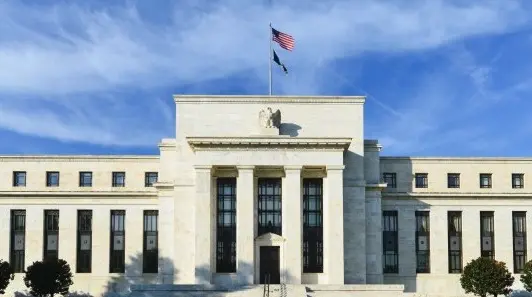|
Firms expect to raise prices and wages less aggressively, according to the latest Bank of England business survey. While this data alone is unlikely to stop a 25bp rate hike in March, if these trends continue through the spring, it suggests that this will mark the end of the current tightening cycle
|

|
New Bank of England data suggests selling price expectations are easing
Bank of England Governor Andrew Bailey hinted pretty strongly this week that financial markets are overestimating the amount of tightening that’s still to come. While he wouldn’t be drawn on what policymakers will do next, the emphasis is no longer on the size of future rate hikes, and instead, the question is whether the Bank needs to hike any more full stop.
In the short term, the Bank is back to old-fashioned “data dependency”, and February’s meeting made it clear that future hikes will hinge on indicators of “inflation persistence”. We read that to mean policymakers are now less focused on month-to-month swings in inflation data and are looking more closely at price-setting behaviour in general.
And the latest news here is encouraging. The BoE’s latest Decision Maker Panel – a survey of CFOs across the UK – supplies further evidence that price pressures are easing. This survey, which we know factors heavily into the policymaking process, shows companies now expect price growth to average 5.4% over the next year, down from a peak of 6.7% last summer. It’s a similar story when firms are asked about expected unit cost growth and CPI expectations.
|
|
Key metrics from the BoE's Decision Maker Panel

|
|
A March rate hike is likely, but that could be the last
Importantly, it also suggests wage growth is peaking. The survey shows that firms expect wage growth of 5.7% over the next year, down from 6.3% in December. Time will tell whether this feeds into the official regular pay data, which has continued to run hot – something Governor Bailey remarked upon in a speech yesterday.
Is there enough here to cast doubt over a March rate hike? We don’t think so. Despite a surprise downward move in core services inflation last month, the latest wage data probably suggests the Bank has a little further to go on rate rises. But if the trends displayed in this latest survey continue over the next couple of months, then our base case is that the March rate hike will be the last.
We don’t rule out a final 25bp hike in May if the inflation data proves more persistent than expected between now and then. But markets are pricing a further 70-80bp of tightening by the summer, which we think looks excessive.
|
|
Recruitment difficulties increased last month

|
|
Whatever happens, it looks like rate cuts aren’t likely to come through for at least year. One caveat to the generally positive story in the latest BoE survey was that recruitment difficulties worsened last month. The proportion of firms finding it “much harder” to recruit rose to 44%. Though that’s still well down on the level seen last summer, it is a reminder that structural worker shortages remain an issue. While wage growth is probably at, or close to, it’s peak, this suggests any decline will be pretty gradual.
|
|
| Read this article on THINK |
Disclaimer
This publication has been prepared by ING solely for information purposes irrespective of a particular user's means, financial situation or investment objectives. The information does not constitute investment recommendation, and nor is it investment, legal or tax advice or an offer or solicitation to purchase or sell any financial instrument. Read more










































































